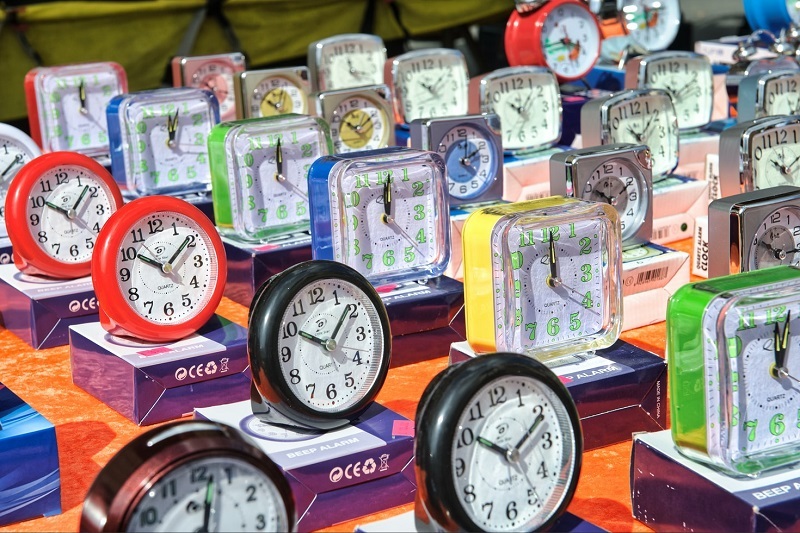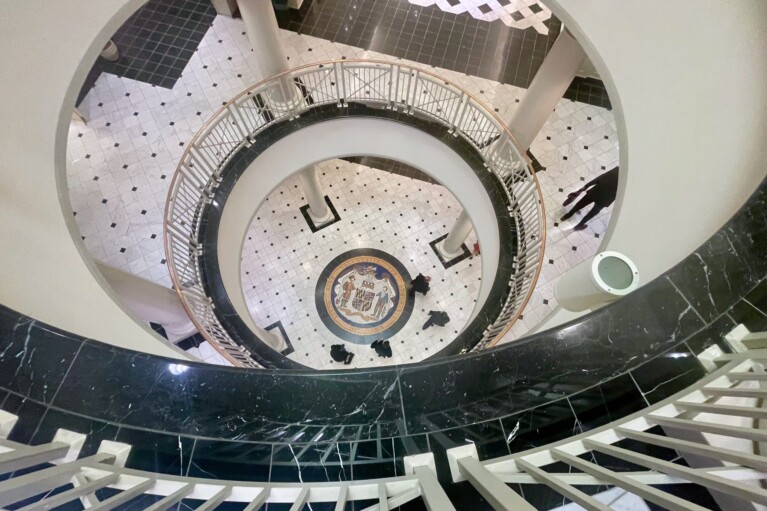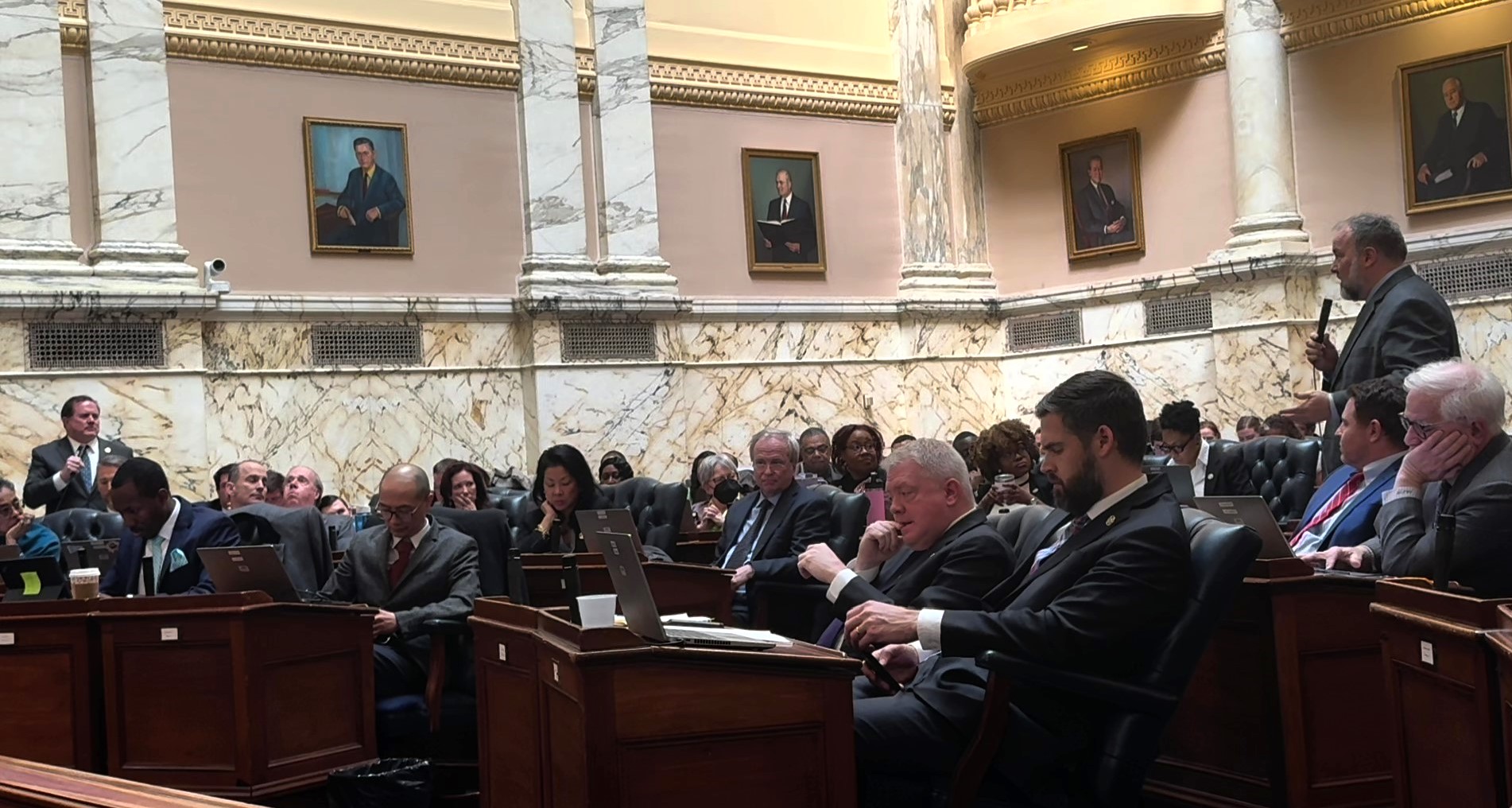Del. Crosby: The Negative Effects of Twice-a-Year Clock Change Are Undeniable

By Brian Crosby
The writer, a Democrat, represents St. Mary’s County’s District 29B in the Maryland House of Delegates.
Twice a year, Americans change their clocks to adhere to the observation of standard time and daylight saving time. Every year, Americans dread the Sunday in March when the clocks “spring forward” and welcome the extra hour of sleep that comes with “fall back” in November.
Studies show that the biannual clock changes have significant negative effects on overall health, crime rates and traffic accidents.
Heart attacks increase 24% the Monday after the spring time change, crime rates are over 30% higher in the afternoon darkness hours, and fatal vehicle-on-pedestrian crashes increase threefold when the sun goes down. These statistics amount to one simple solution: permanent daylight saving time.
Last year, I introduced HB1006 to move Maryland to permanent DST upon the condition that surrounding states and the District of Columbia enact similar legislation and federal law is changed to allow permanent DST for the states. Delaware has already passed similar legislation to move to permanent DST.
This year, I re-introduced the bill — HB 126 — to end the changing of the clocks. The negative effects of biannual clock change are undeniable. Fatal car crashes increase 6% during the work week following the “spring forward” to DST, and there is an 11% increase in depressive episodes during the switch from DST to standard time.
When I introduced this legislation for the first time, my main goal was to end changing clocks biannually, but after conversations with colleagues, stakeholders and constituents, it has become clear that permanent DST is the preference for a majority of citizens.
Opponents argue that school start times would be adversely affected by permanent DST, and students would be traveling to school in the dark. I am in agreement that, currently, schools start too early, and I applaud the efforts by some local school boards, such as Anne Arundel County Public Schools, to move school start times back. We also heard the opposition speak to car crashes involving school-age children in the dark morning hours. But school start times are only part of the issue.
A top issue for Marylanders entering the 2022 legislative session is crime.
During daylight saving time, crime drops by 7% as a majority of crime is committed in the darkness of evening hours. Our children are far safer in dark morning hours than they are in dark evening hours.
As I have stated before, fatal vehicle-on-pedestrian accidents increase threefold when the sun goes down. We are endangering our children if they are playing outside in the summer if we were to move to permanent standard time.

Del. Brian Crosby (D-St. Mary’s)
On top of all of these life-saving effects, the economic impact of permanent DST is overwhelmingly positive. The U.S. Chamber of Commerce favors it because of its effect on small businesses. Recreation would also flourish with the extra hour of daylight in the evenings. Although the myth surrounding the creation of DST that farmers were the catalyst for the change is not true, an overwhelming majority of farmers support the change to permanent DST.
Opponents neglect that the negative impacts of permanent DST almost exclusively revolve around the time change, and the effects of the time change would dissipate once the clock changes cease.
We disagree with the red herring opposition argument that the sun will rise at 8:30 a.m. in the winter because this is the latest the sun will rise. Opponents also mention the federal policy of the 1970s, which moved the entire country to DST due to the energy crisis, and how the policy reverted due to widespread backlash.
But in times of great climate uncertainty like today, it is absolutely necessary to save energy where we can. Permanent DST will save energy and reduce the amount of electricity needed to light homes, as well as reduce the amount of oil and gas needed to heat homes. We can argue the effects of going to school or work in the dark for days on end, but we cannot argue the necessity of the climate crisis that we are facing.
I hope to bring an end to the biannual clock change, which would save lives, increase overall mental health and reduce crime. I am pleased to see that the House Health and Government Operations Committee favorably reported this bill, and I hope to see this bill pass and move us one step closer to ending clock changes permanently.




 Creative Commons Attribution
Creative Commons Attribution